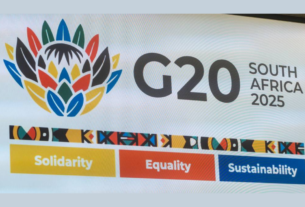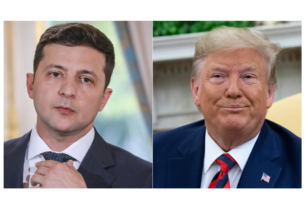Labour Party leader Keir Starmer dismissed U.S. President Donald Trump’s claim that the UK trades unfairly with the U.S. Trump made the statement during a February 2025 interview, alleging that Britain takes advantage of American trade policies. Starmer responded by defending the current trade agreements and emphasizing the importance of maintaining a strong UK-U.S. relationship.
Trump’s comments sparked concerns about the future of trade negotiations during his presidency. He has previously criticized European trade policies, arguing that the U.S. should impose stricter terms to protect American businesses. “The UK has always been a fair trading partner, and our agreements reflect that,” Starmer said in a press briefing, pushing back against the accusations.
The UK and U.S. traded over $270 billion worth of goods and services in 2025, making Britain one of America’s largest economic partners. Trade agreements between the two nations support thousands of jobs in sectors such as manufacturing, finance, and technology. Starmer stressed that maintaining a balanced and fair trade benefits both economies and dismissed any claims of imbalance as misleading.
Some British officials worry that Trump’s stance could lead to higher tariffs or renegotiated agreements. The Conservative government has worked to maintain a close economic relationship with the U.S. despite political differences. Businesses in both countries depend on stable trade policies to avoid market disruptions, and any uncertainty could harm investments and economic growth.
Analysts say Trump’s remarks could be aimed at gaining leverage in future trade talks. His administration previously imposed tariffs on European goods, arguing that U.S. businesses faced unfair competition. If similar measures were introduced against the UK, industries such as automotive, pharmaceuticals, and agriculture could suffer significant losses. British companies exporting to the U.S. could see increased costs, affecting supply chains and consumer prices.
Trade experts note that Trump’s approach aligns with his previous protectionist policies. During his presidency, he withdrew the U.S. from the Trans-Pacific Partnership and renegotiated NAFTA into the USMCA. His focus on trade deficits and national interests often led to conflicts with traditional allies, including the European Union and Canada. If he returns to office, Britain may need to navigate a more challenging trade landscape.
Starmer called for a practical approach to trade and investment, urging both sides to maintain strong economic ties. He emphasized that Britain is open to discussions but will not accept terms that harm its economy or put British businesses at a disadvantage. His stance reflects Labour’s broader vision of strengthening international cooperation while protecting national industries.
The U.S. government has not announced any immediate plans to change its trade policies with the UK. However, Trump’s comments have fueled speculation about potential shifts in U.S. trade strategy if he secures another term. British officials are expected to monitor developments closely and prepare for any policy changes that could impact the economy.
As the 2025 U.S. presidential election approaches, trade relations with allies will likely become a key topic of debate. The UK government, regardless of leadership, will need to ensure its interests are protected while maintaining a productive partnership with Washington. The outcome of the election could determine the direction of future trade talks and the stability of economic relations between the two nations.




